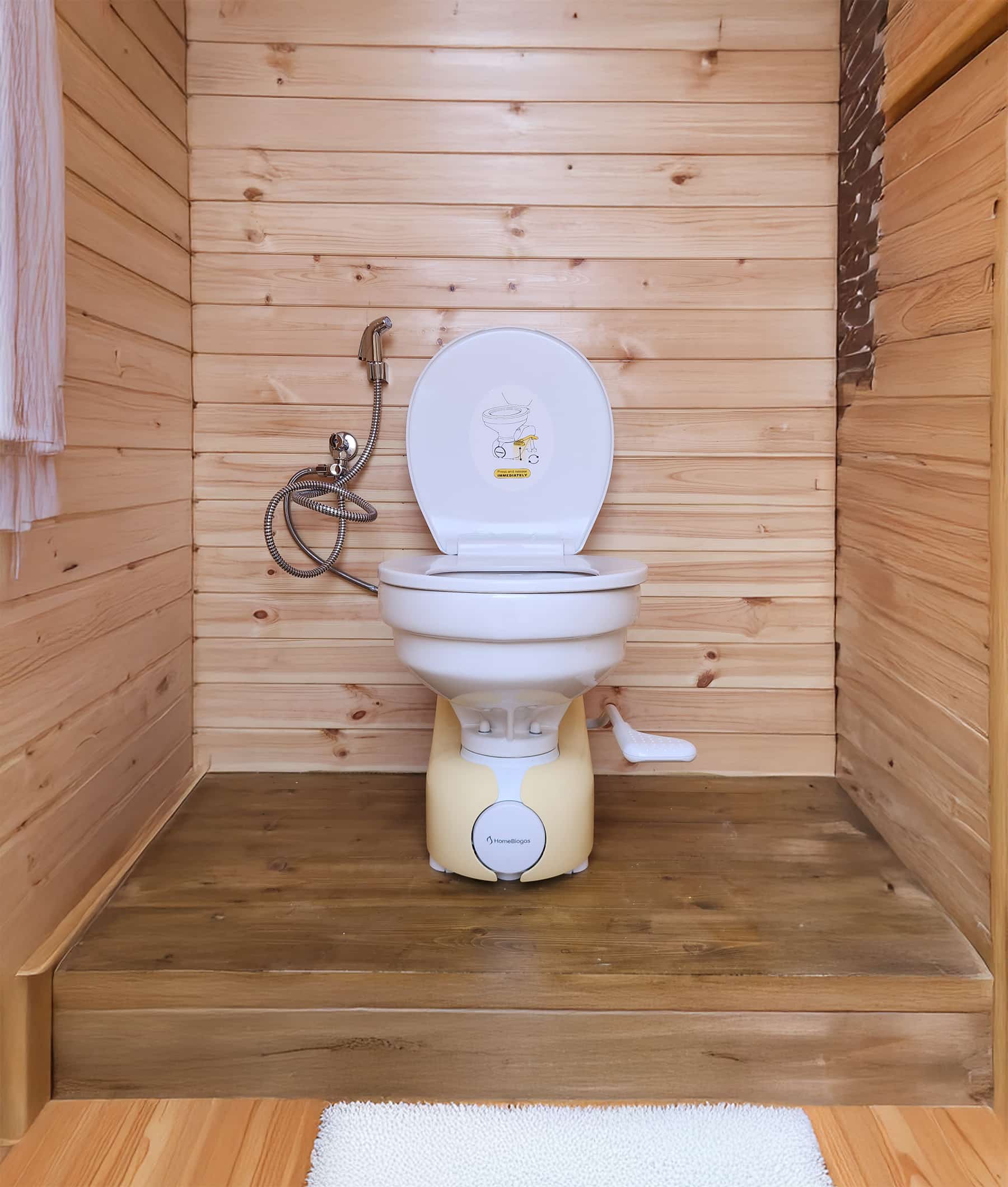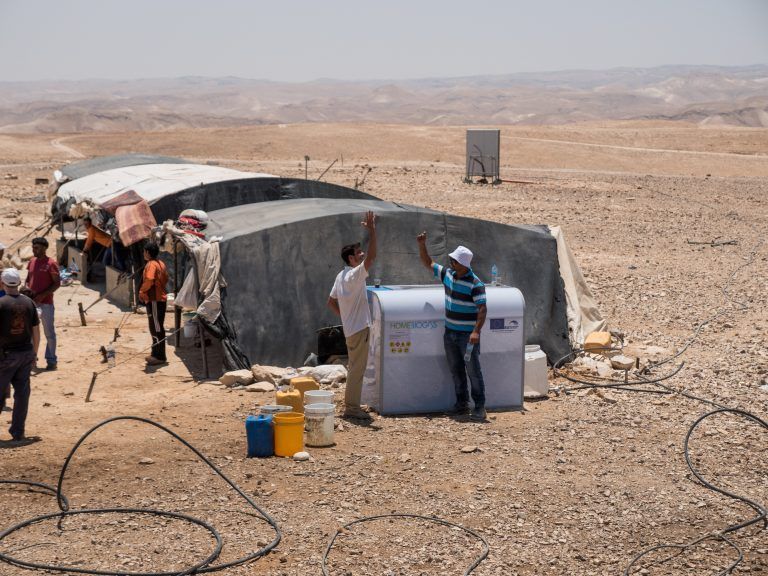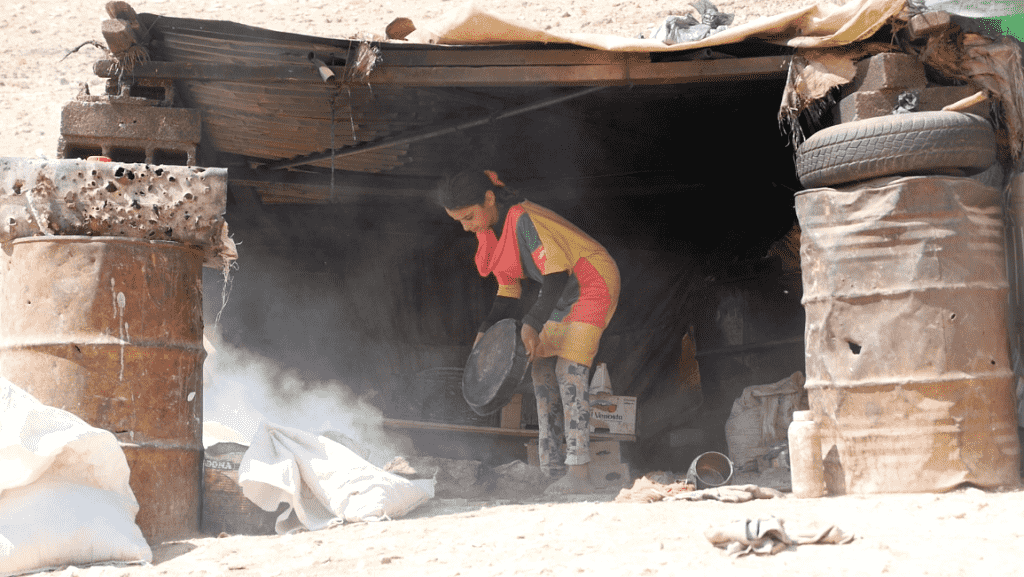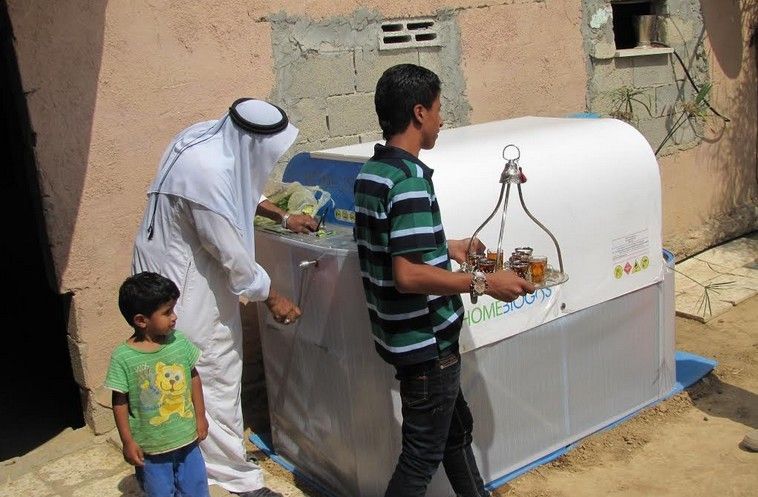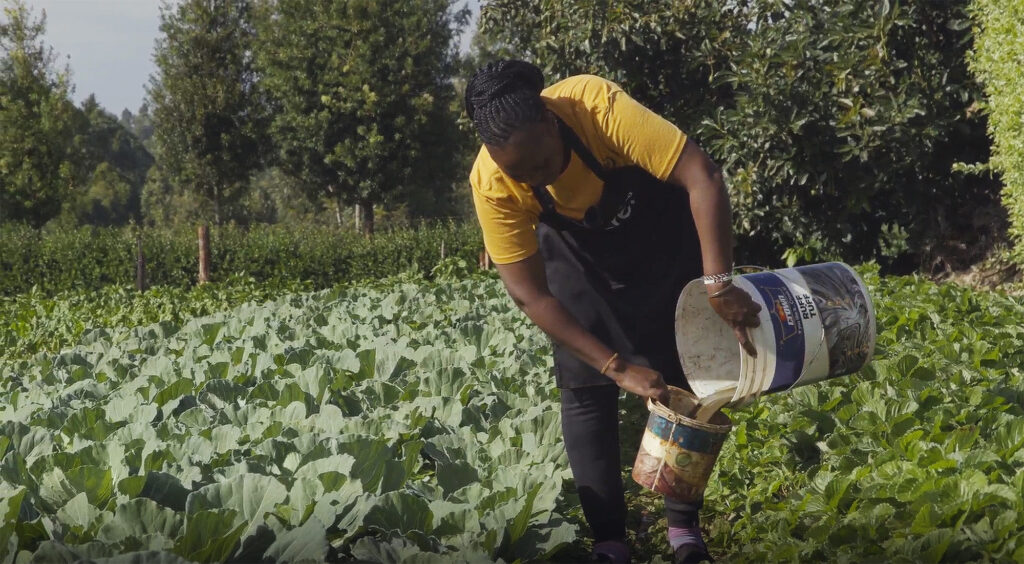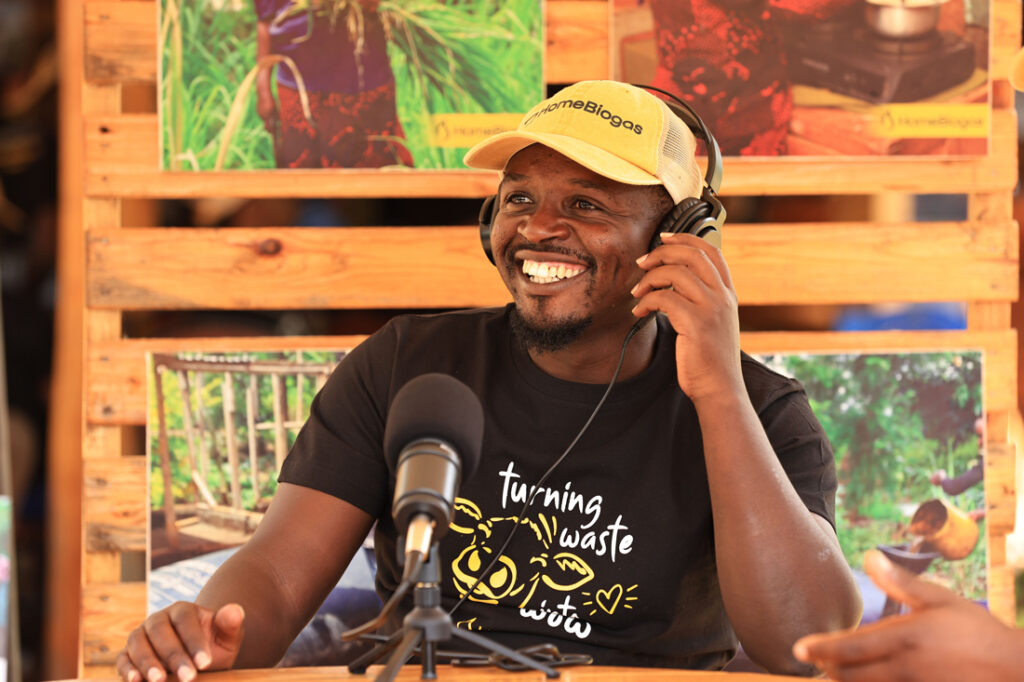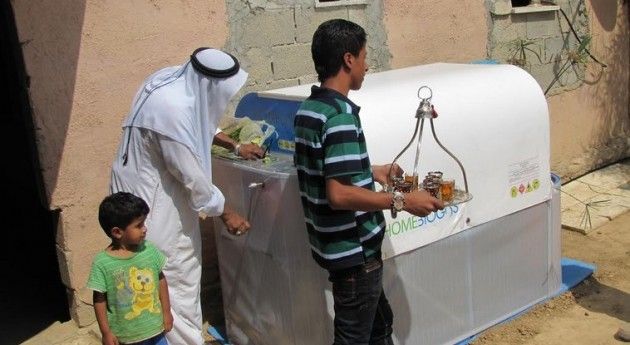
Rural Palestinians Make Their Own Fuel
HomeBiogas installed systems for 40 families, mainly in the Palestinian village of al-Awja in West Bank’s Jordan Valley. The systems were installed outside families’ make-shift homes, so that they can turn kitchen waste and livestock manure into two hours of cooking gas a day.
Most families in these areas live off the grid, in tents or tin huts. Because of this, they are forced to burn wood from trees or goat manure to generate fire for cooking. This practice is arduous and dangerous: more than four million people around the world die annually from the toxic fumes emitted from open fire cooking.
“Children are 50% more susceptible to the harmful smoke of wood-burning. This is why we reach out to rural families as much as we can,” says Yair Teller, HomeBiogas Cofounder, and Chief Scientist.
The system works using a natural process called anaerobic digestion. The bacteria in the digester tank breaks down the matter, creating two by-products: biogas for cooking and a potent, liquid fertilizer for crops and plants. The system gives families these two assets while providing them an easy waste-treatment solution for their food and animal waste.
The project was supported by Israel’s Ministry of Environmental Protection and the Peres Center for Peace,set up by former Israeli president Shimon Peres. The European Union has also contributed half a million Euros for funding this humanitarian project.
Cross-Border Cooperation Efforts
In addition to alleviating health and environment, this project aims to facilitate cross-border partnership and cooperation. It promotes trust-building among Palestinian and Israeli students, professionals, and local village residents. The act of bringing Israeli clean-technology to Palestinians, bridges differences and puts mutual efforts into increasing socio-economic development among rural communities.

